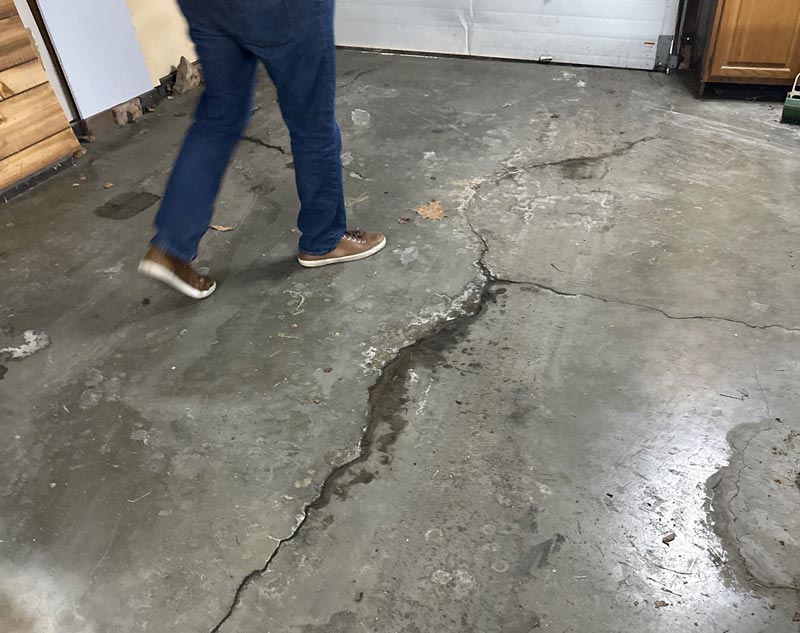
Your foundation plays a critical role in keeping your home safe and stable. If problems go unnoticed, they can quickly turn into costly repairs that affect your entire house. A foundation inspection helps you identify issues early and understand the condition of your home’s structure. So, if you are buying a new home, planning repairs, or simply want peace of mind, a foundation inspection gives you valuable information. Let’s walk through what a foundation inspection is, why you might need one, and what you can expect during the process.
What Is a Foundation Inspection?
A foundation inspection is a professional assessment of your home’s foundation and surrounding areas. It looks at the structural condition of your foundation, signs of damage, and any potential risks that could affect stability. Inspectors evaluate both the inside and outside of your home to determine if there are problems such as cracks, uneven settling, or water intrusion. The goal is to catch issues before they compromise your home’s safety and value.
When and Why Homeowners Need a Foundation Inspection
You may need a foundation inspection for several reasons. Here are some of the most common situations when scheduling a foundation inspection is a good idea:
- You are buying or selling a home and need to confirm the foundation’s condition
- You notice cracks in the walls, ceilings, or floors that may indicate movement
- Your doors and windows stick or no longer close properly
- You suspect water damage or moisture issues in the basement or crawl space
- You want to maintain your home’s value and prevent costly structural repairs
What Does a Foundation Inspection Include?
A foundation inspection covers several areas of your home to ensure a complete evaluation. Here is what the process typically includes:
Exterior Inspection
The outside of your home is the first place inspectors look for signs of foundation trouble. They check for visible cracks in foundation walls, gaps near windows and doors, uneven concrete, and drainage issues. The condition of your landscaping and grading is also reviewed since poor water runoff can put pressure on your foundation. A careful exterior inspection helps identify where water or soil movement may be stressing the structure.
Interior Inspection
Inside your home, inspectors focus on signs that the foundation may have shifted. They examine the floors, walls, and ceilings for cracks, uneven surfaces, or separation from the trim. Doors and windows that do not open or close smoothly often point to movement. Inspectors also look for signs of moisture, such as stains or musty odors, which may suggest hidden leaks. By reviewing both finished and unfinished areas, they can uncover problems that may not be visible to you.
Structural Components
Beyond cosmetic signs, inspectors evaluate the structural elements of your foundation. This includes beams, joists, support columns, and load-bearing walls. They check for wood rot, sagging, or other damage that could weaken your home. A close review of these components is important because even small issues in support structures can affect the stability of your entire house.
Moisture and Water Intrusion Assessment
Water is one of the biggest threats to a foundation, and inspectors pay close attention to it during an inspection. They look for damp spots, leaks, and signs of seepage around the basement or crawl space. Mold, mildew, and musty odors often point to ongoing moisture problems, so those are checked as well. Inspectors also review whether drainage systems like sump pumps or vapor barriers are doing their job. Catching water intrusion early makes it easier to protect your foundation and avoid serious damage down the road.
Foundation Movement or Settlement
Soil around your home does not stay the same forever; it shifts with changes in weather, moisture, and pressure. Over time, that movement can cause the foundation to settle unevenly. Inspectors check whether your foundation is level and may use measuring tools to spot even small shifts. Uneven settling can create cracks, sloping floors, or structural strain, so understanding how much movement has occurred is an important part of the inspection.
Types of Foundation Inspections
Not every foundation inspection looks the same. The type you need depends on the condition of your home and when you last had an inspection.
Visual/General Inspection
A visual inspection is the simplest type of inspection and gives you a broad idea of your foundation’s condition. Inspectors walk around your home and look for visible warning signs such as cracks, leaks, or areas where the foundation appears uneven. While it won’t go into comprehensive detail, it’s a good option if you want a quick check of your home’s stability.
Structural Engineer Foundation Inspection
For a deeper look, a structural engineer inspection is the next step. Engineers have the specialized knowledge to assess the overall strength of the foundation and pinpoint the cause of any problems. They provide detailed reports that outline the condition of your home and what repairs may be needed. Because of the accuracy and authority of these inspections, they are often required during a home sale, insurance claim, or major repair project.
Signs You May Need a Foundation Inspection
Here are some warning signs that you should schedule a foundation inspection:
- Cracks in walls, ceilings, or floors
- Doors or windows that stick or do not align properly
- Uneven or sloping floors
- Water damage or dampness in the basement or crawl space
- Gaps between walls, ceilings, or baseboards
What Happens After a Foundation Inspection?
Once your inspection is complete, here is what you can expect next:
Receiving the Inspection Report
Once the inspection is finished, the inspector puts together a report that explains what was found. It may have photos of problem areas along with notes on cracks, moisture, or movement. The report also points out whether the issues are only cosmetic or if they suggest deeper structural trouble.
Recommended Next Steps
Based on the report, you will be given recommendations for repairs or maintenance. These may include sealing cracks, improving drainage, or installing reinforcement systems. If major issues are found, the inspector may suggest working with a foundation repair company. The goal is to give you clear options so you can protect your home and avoid further damage.
How Much Do Foundation Inspections Cost?
The cost of a foundation inspection depends on the type and depth of the evaluation. A general foundation inspection is usually less expensive, while an engineer’s report may cost more due to the level of expertise involved. On average, you can expect to pay between a few hundred dollars for a basic inspection and several hundred for a detailed engineer review. The investment is small compared to the cost of repairing foundation damage later. At KC Waterproofing and Foundation Repair, we offer free consultation to help you determine the cost of protecting your home.
Final Thoughts
A foundation inspection is one of the smartest ways to protect your home. By catching problems early, you can save yourself from expensive repairs and ensure your house remains safe and stable. If you suspect any issues or simply want peace of mind, reach out to us for a professional inspection. We will guide you through the process and provide solutions that keep your foundation strong for years to come.
FAQs
How long does a foundation inspection take?
Most foundation inspections take one to two hours, depending on the size of your home and the level of detail required. Larger homes or inspections that require specialized equipment may take longer to complete.
Is a foundation inspection necessary if I do not see visible cracks?
Yes. Even if you do not see cracks, your foundation may still have hidden issues. Moisture, soil pressure, and small shifts can affect your home before visible signs appear.
Can I inspect the foundation myself?
You can look for surface-level signs of damage, such as cracks or dampness, but a professional inspection is more thorough. Experts have the tools and training to detect issues you may overlook.
Is a foundation inspection required when buying a home?
In most cases, yes. A foundation inspection ensures you understand the home’s condition before purchase. It protects you from unexpected repair costs and gives you leverage during any negotiations.
Does a foundation inspection include moisture testing?
Yes. Inspectors check for moisture and water intrusion as part of the assessment. They look for leaks, damp areas, and signs of mold to determine if water is affecting the foundation.










